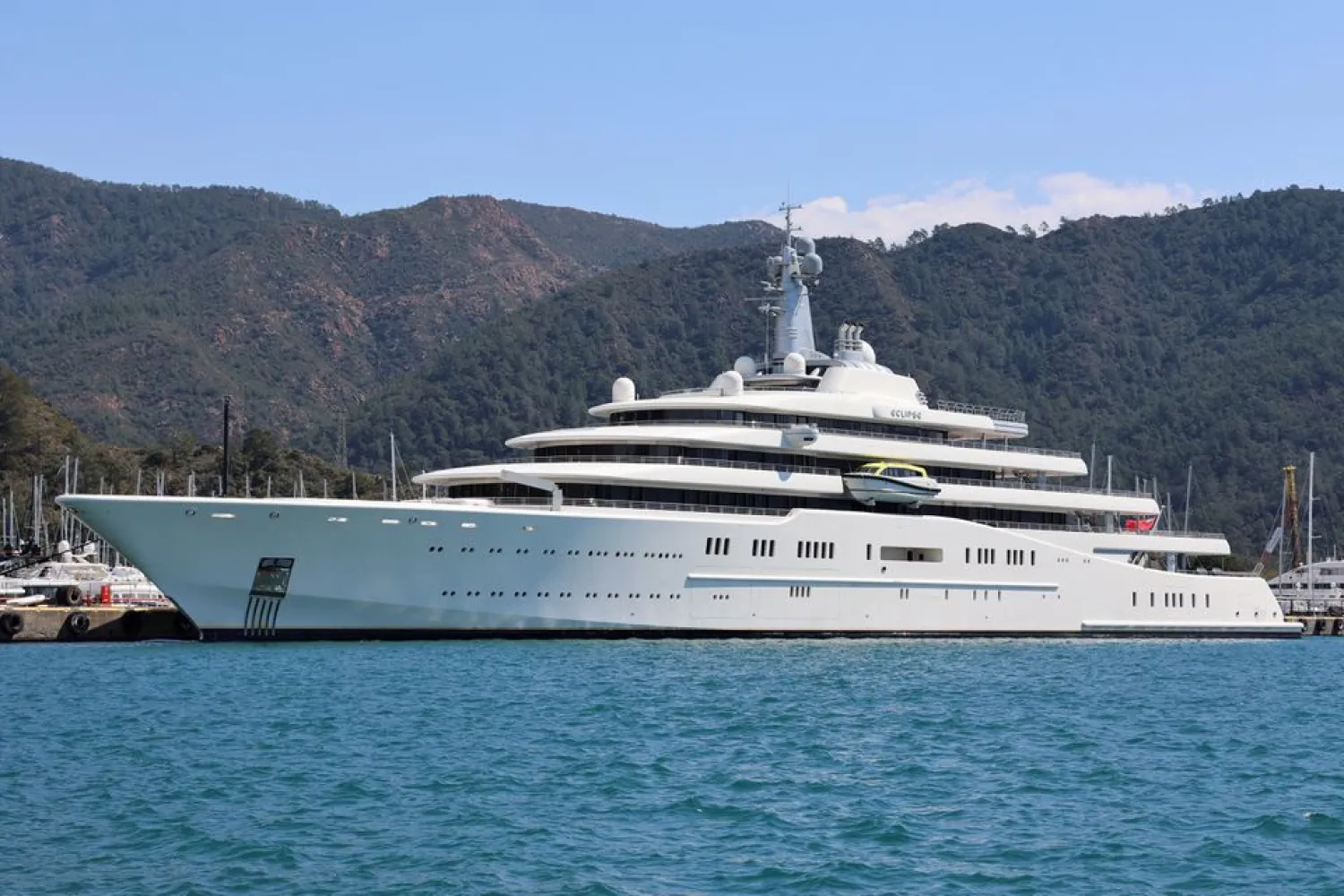Since Russia's invasion of Ukraine sparked a flurry of Western sanctions on Moscow, at least one oligarch and thousands of other Russians have arrived in Turkey, seen as a safe place to stay, invest and hold assets despite its NATO membership.
Acting as a safe haven raises risks for Turkey's government, banks and businesses that could face tough decisions and penalties if the United States and others ramp up pressure on Moscow with broader "secondary" sanctions.
Here is what is at stake:
Why is Turkey attractive to Russians?
Turkey has said Russian President Vladimir Putin's decision to invade Ukraine is unacceptable but opposes the sanctions on principle and is not enforcing them.
Turkey's economy, already battered by a currency crisis and soaring inflation, relies heavily on Russian oil, gas, trade and tourism.
Some 14,000 Russians have reportedly arrived in Turkey since the war began on Feb. 24, many carrying wads of cash due to blocks on their US credit cards and challenges in doing basic banking. Realtors say many are using cash and converted crypto currencies to buy property as a safe investment.
Roman Abramovich, one of several Russian oligarchs blacklisted by the West, has also visited Turkey and two of his superyachts worth a combined $1.2 billion docked at Turkish resorts last week. Oligarchs could invest more, sources familiar with private talks have told Reuters.
Turkish Foreign Minister Mevlut Cavusoglu said on Saturday Russian oligarchs and citizens were "of course" welcome and could do business in Turkey according to international law.
Can the safe haven last?
Western governments have already seized some oligarchs' assets, have frozen Russia's reserves and ousted it from the SWIFT banking system, and they could press Ankara to tighten loop holes. Analysts say they could impose secondary sanctions on those doing business with the main target, Russia.
"If the humanitarian tragedy persists and Putin has no intention of backing down, I think secondary sanctions are inevitable," said Hakan Akbas, founding partner of Istanbul-based Strategic Advisory Services, which deals with sanctions.
"The West will pay more attention to any potential loop-hole countries so they don't become safe havens," he said. "Ankara's hands would be tied... and it would inevitably have to take a tougher stance against Russia."
This could send a chill through Turkish banks and companies dealing with Russian clients or doing business abroad. In 2020, the US Treasury applied secondary sanctions on Turkey's Defense Industry Directorate, its chief and others over Ankara's purchase of Russian S-400 missiles.
Yet given Turkey's efforts to mediate between Moscow and Kyiv, it could avoid the sanctions crossfire. Another round of peace talks is due to take place in Istanbul this week.
Dutch Prime Minister Mark Rutte has welcomed Ankara's diplomatic role, while adding "we would very much like Turkey to implement all the sanctions".
How are banks and companies preparing?
Faced with a flood of new Russian customers, Turkish banks have resisted some deposit and transfer requests and ramped up compliance checks for fear of contravening sanctions.
This has frustrated some Russians. But it reflects caution across the sector that seeks to avoid a repetition of the years-long US prosecution of Turkish state lender Halkbank, which is accused of having helped Iran evade US sanctions.
The BDDK bank regulator said it has given no instruction to limit citizens of any country. But a senior banking source said the sanctions were nonetheless "perceived as a new risk" and firms had met several times to discuss it since the war began.
Akbas said big Turkish companies and conglomerates have more than $10 billion in assets in Russia, and Moscow is now pressing them to continue operations and pay workers or risk bankruptcy.
Many of them do far more business in the West and may have to make a "binary decision" whether to leave Russia as several big US and European brands have done, he said.
Any sanctions fallout could further bruise Turkey's reputation among foreign investors after years of unorthodox monetary policy and outflows.
That reputation took another hit last year when an international watchdog, the Financial Action Task Force, downgraded Turkey to a so-called grey list for failing to head off money laundering and terrorist financing.
















